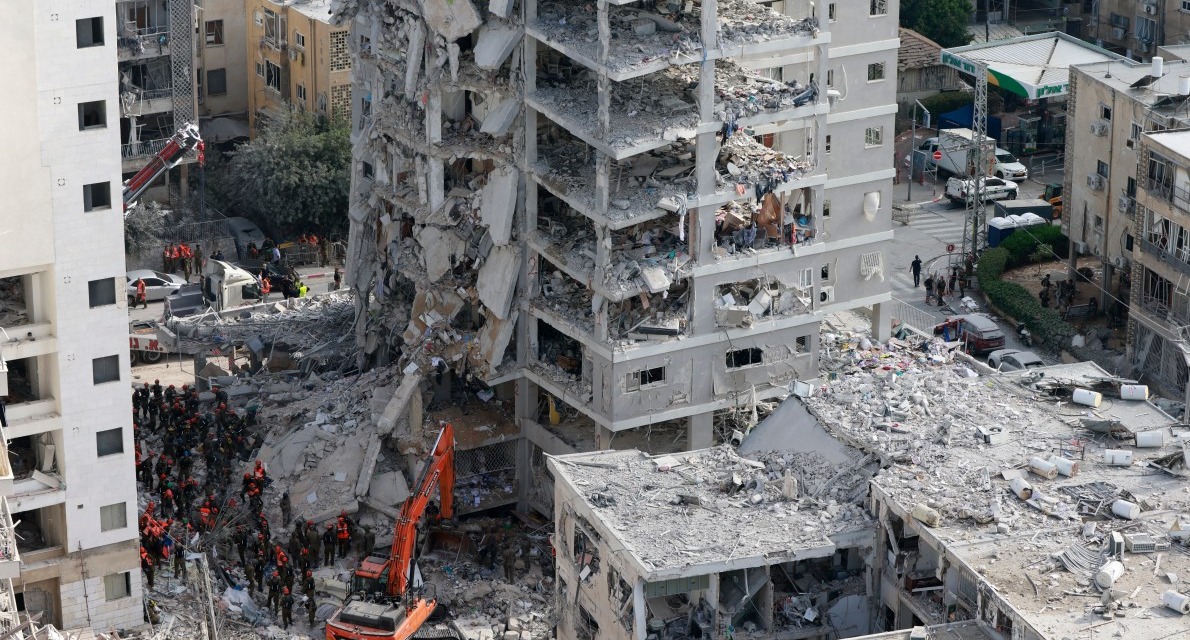What is unfolding today between Iran and Israel is nothing short of a full-fledged war — a war of survival that has been years in the making. Since the 1979 Iranian Revolution toppled Shah Mohammad Reza Pahlavi, the Islamic Republic has made its stance against Israel clear. The symbolic moment came when Iranian revolutionaries replaced the Israeli flag with the Palestinian one at the Israeli embassy in Tehran, transforming it into the first official embassy of the State of Palestine since Israel's establishment in 1948.
The first Israeli strike in this latest confrontation did not catch the Iranian leadership off guard. For weeks, American and Israeli rhetoric had been escalating. Israel’s initial assault was swift and strategic, mirroring tactics it had previously used in Lebanon, including the targeted assassinations of top Iranian military and intelligence figures, under the belief that such moves would dismantle Iran's command structure ahead of a larger military campaign.
But Iran quickly absorbed the initial blow. Within hours, it transitioned from defense to attack, launching an unprecedented barrage of missiles. The scale, speed, and destruction — particularly in Tel Aviv — marked a major shift from previous rounds of tit-for-tat attacks. This time, Tehran's response wasn’t just a counterstrike; it was a declaration of sustained warfare.
The longer this conflict drags on, the more it could tilt in Iran’s favor. Geographically, Iran is 76 times larger than Israel. Meanwhile, Israel’s population and infrastructure are heavily concentrated, especially in the Gush Dan area that includes Tel Aviv, home to over 4 million people. Iran appears to be executing a war of attrition, launching wave after wave of attacks guided by a long-prepared operational plan. Every inch of Israel, it seems, is now within range of Iranian firepower.
According to Iranian analysts, Prime Minister Benjamin Netanyahu has made a strategic miscalculation by launching the first strike. In doing so, they say, he offered Iran an opportunity to settle long-standing scores over Israel’s actions in Lebanon, Gaza, and Yemen, and its targeting of Tehran’s regional allies since the October 7 "Al-Aqsa Flood" operation.
The exchange of strikes has also debunked the narrative that Israel alone controls the war’s tempo. Netanyahu’s past boasts — that Israel could decapitate Iran’s leadership after weakening its allies — are now being put to the test. Iranian officials argue that the U.S., especially under President Donald Trump, is complicit in this war. They point to Trump’s overt support and believe he’s using Netanyahu as a pawn — the neighborhood thug, as some put it — in a high-stakes gamble to pressure Iran into submission on its nuclear program.
From Iran’s perspective, Trump wins either way. If Israel succeeds, Washington tightens its grip on Tehran. If it fails, the U.S. walks away clean, leaving Netanyahu to take the blame for "dirty work." Then, Washington can approach Iran with “new terms” — harsher than those proposed by American envoy Steve Weitzkopf in the now-cancelled sixth round of nuclear talks.
Iran believes the Weitzkopf proposal is now irrelevant. The new U.S. position, they argue, is deliberately extreme, intended to create a war that forces Iran to negotiate under fire — and accept humiliating conditions in exchange for a ceasefire.
Netanyahu’s message to the Iranian people at the onset of the war made one thing clear: Israel is seeking regime change in Tehran. Had Israel’s initial strikes succeeded, they would have targeted Iran’s leadership, not just its nuclear sites. But Tel Aviv underestimated Iran’s internal cohesion. History has shown that the Iranian public quickly rallies in the face of external threats, and this war is proving no different.
Moreover, Iran has drawn regional and global sympathy. From China to Pakistan, from Russia to several Arab states and Turkey, many nations view Israel’s aggression as dangerously expansionist. They fear that a collapse of the Iranian regime would pave the way for unchecked Israeli dominance — and the definitive end of Palestinian statehood aspirations.
With some of its nuclear facilities already targeted, Iran now sees little reason to continue nuclear negotiations with the U.S. Trust has eroded. Talks have lost meaning. Tehran has already begun reviewing and possibly scaling back cooperation with the West on its nuclear program.
As a result, peace remains distant. Israel still hopes to destroy Iran’s air defenses, opening its skies for unimpeded airstrikes and missile attacks on key strategic facilities — particularly those linked to Tehran’s nuclear and missile programs, which it sees as existential threats.
Iran, in turn, has no interest in halting the war. It seeks revenge — a total reckoning with Israel. For Tehran, at the very least, that means toppling the Netanyahu government.
Meanwhile, Lebanon finds itself an unwilling witness to this war. Iranian missiles and drones have crossed its skies en route to Israel. Yet "Hezbollah", Iran’s closest ally in the region and a major pillar of its so-called "Axis of Resistance," has stayed out of the fight — at least for now. Domestic Lebanese dynamics and intense Western pressure to disarm "Hezbollah" and return all weapons to the state are key reasons for its current restraint.
Still, if Iran’s regime faces an existential threat, "Hezbollah" may not stay on the sidelines much longer.
Please post your comments on:
[email protected]
 Politics
Politics








